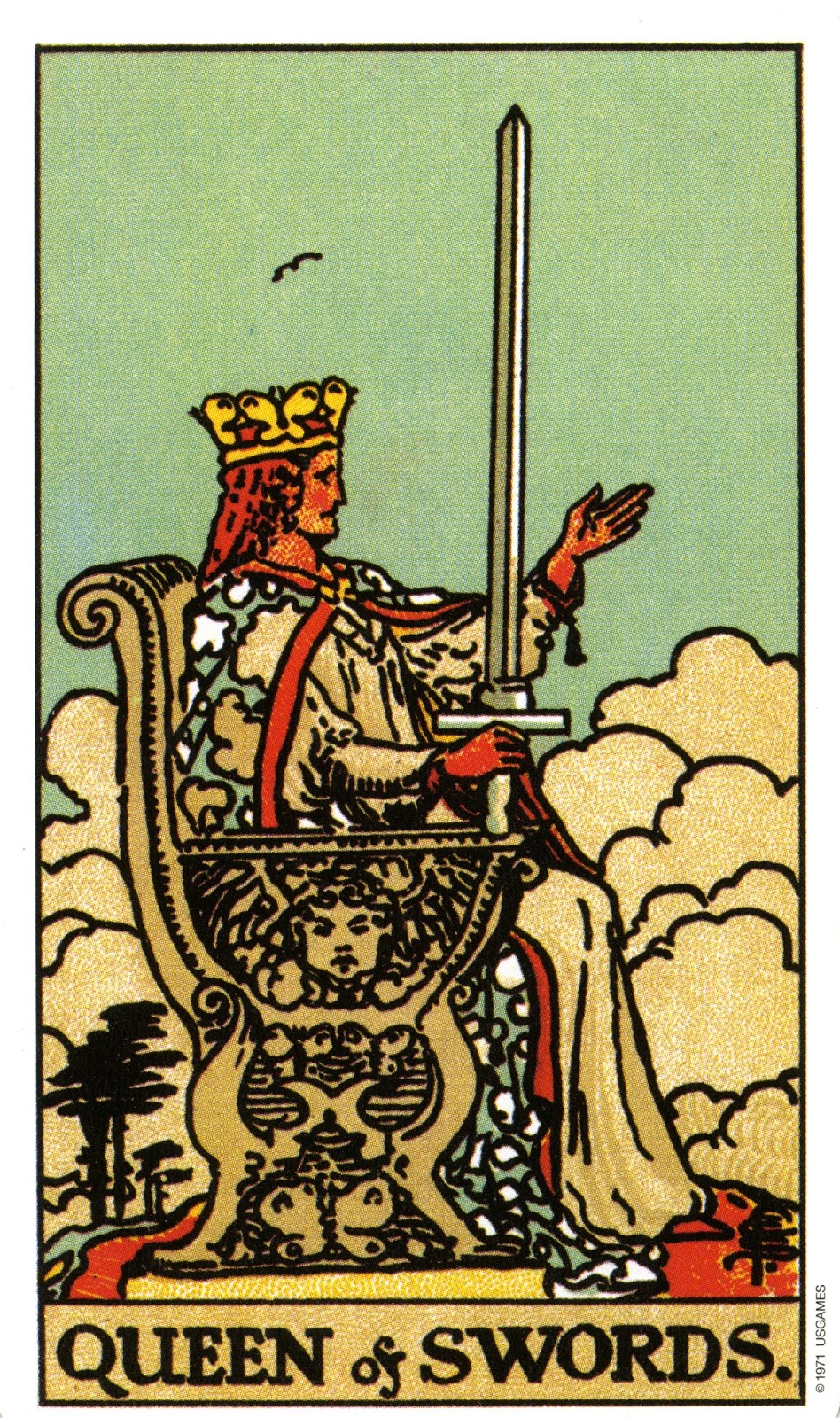
Waite denotes the Queen of Swords as: Widowhood, female sadness and embarrassment, absence, sterility, mourning, privation, separation. Reversed – A bad woman; malice, bigotry, artifice, prudery. deceit.
I go along with Waite in part, but there is so much more to the Queen of Swords than the above. The court cards are supposed to represent a person, a queen a female and a king (or knight or page) as a male, but those ideas are well outmoded. Gender is no longer regarded as a physicality, but what the person feels they are, however, that is a conversation for another time. It is more about representing facets of a person.
The Queen of Swords, being a sword is a card of the intellect. It may be a man or a woman, but the overall feeling is not only a sense of loss, but also how that loss is affecting the person involved. Men and women generally feel bereft at the loss of a relationship, and generally act in similar ways. The Queen of Swords may not just simply signify a loss of relationship, but the loss of perhaps an ideal, like a way of life, perhaps a job or a home, but a loss nonetheless, and alters our behaviour according to that loss.
The Queen of Swords differs slightly from let’s say the Five of Cups, in the Five of Cups indicates sadness. The Queen of Swords is slightly different, and has a harder edge.


